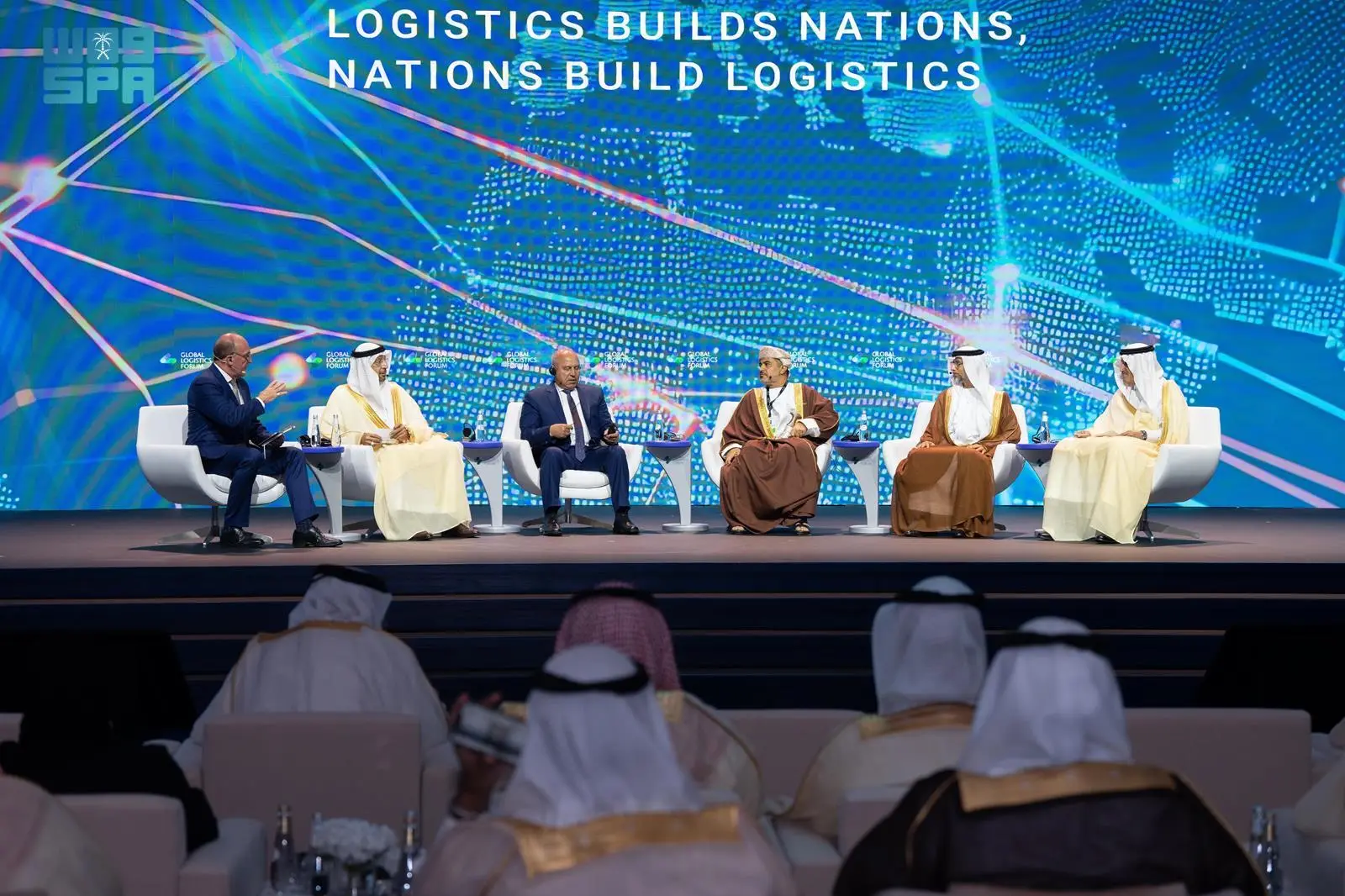The Global Logistics Forum (GLF) hosted by the Ministry of Transport and Logistic Services, gathered industry leaders from the region October 12-14, 2024, at the King Abdullah Financial District.
Serving as a bit of a progress report on Saudi Arabia’s National Transport and Logistics Strategy which was launched in 2021, the just-concluded, inaugural Global Logistics Forum 2024 hosted by the Ministry of Transport and Logistic Services included ministers and regional heads as well as leading local and international logistics representatives.
Feature sessions included Saudi Arabia’s Minister of Transport and Logistic Services Saleh Al-Jasser; Khalid bin Abdulaziz Al-Falih, Saudi Minister of Investment; Suhail Mohamed AlMazrouei, Minister for Energy and Infrastructure for the UAE; Eng Said Hamood Said Al Mawali, Minister for Transport, Communications and Information Technology for Oman and Lt-Gen, Kamel Abdelhady AlWazir, Deputy Prime Minister for Industrial Development and Minister of Industry and Transport for Egypt.
Minister Al-Jasser noted that the National Transport and Logistics Strategy committed to investing SR1 trillion ($270 billion) by 2030 and that SR200 billion ($53.27 billion) has been deployed. He also noted that, “These investments have translated into leapfrogs in the Saudi logistics sector, leading us to rise in global rankings, jumping 17 ranks in the Logistics Performance Index issued by the World Bank and 14 places in the Global Connectivity Index of the International Air Transport Association.”
Saudi Investment Minister Khalid Al-Falih announced that the government plans to appoint private operators to manage four airports in the Kingdom in the coming months. “The government is moving away from direct business involvement. Empowering and enabling the private sector is essential,” said Al-Falih stated. Noting that the Madinah airport, the Kingdom’s most efficient, is managed by a private operator under a long-term concession, while King Abdullah Port, built with no government capital expenditure, is also privately operated.
Al-Falih added that Saudi Arabia’s new investment law – which includes stronger protections for investors, ensuring adherence to the rule of law, fair treatment, property rights, robust intellectual property safeguards, and streamlined fund transfers – is attracting significant investments in logistics and transport.
Adding that, “What is essential for us in the region is the regionalization of global supply chains. While globalization has benefitted humanity and the global economy, it is evolving toward a multi-hub regional logistics and transport system. The Middle East is at the forefront of developing its logistics and transport sector. We sit at the intersection of north-south and east-west routes, and we are actively creating our own regional logistics hub. We’re not starting from scratch; I anticipate rapid progress.”
“Over 40 major agreements [were] signed between global logistics industry leaders, further strengthening connectivity within the sector. Notably, the Ministry of Transport and Logistic Services (MOTLS) announced Memoranda of Understanding (MoUs) with the National Unified Procurement Company to establish new regional hubs for medical supplies… the Saudi Logistics Academy revealed a series of training initiatives in partnership with Neom, Qassim University, and Salihiya Cargo and Shipping Agency, among others… the General Authority of Civil Aviation also secured agreements with Alat, Bahri Logistics, and Danfoss, alongside new investments and the handover of Special Integrated Logistics Zone licences.”
To read more, click here, here, here, here and here.









